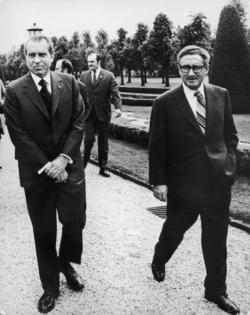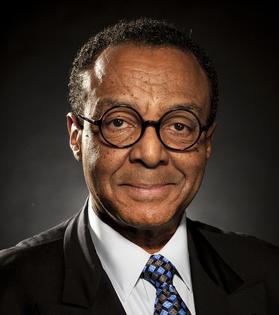Coming to Terms with Henry Kissinger’s Legacy — It’s Complicated
Over his century on Earth, Henry Kissinger left a big mark, love him or hate him. And a lot of people sure did hate him.
Take Anthony Bourdain. The late celebrity chef and TV personality is back in the public eye with the reminders of his long-ago takedown of Kissinger, who died Wednesday at age 100. But when I think of the Vietnam War veterans I know who share his opinion, Bourdain wasn’t very far out on a limb either.
“Henry Kissinger walks into a bar,” Bourdain once asked guests as they appeared on an episode of his “Parts Unknown” TV program. “Would it displease you if I walked over and punched Henry Kissinger in the face?”
Harsh. But not an unheard-of sentiment when it came to Kissinger. Bourdain died by suicide in 2018 after spending time in Vietnam, Cambodia and Laos, among the more than 80 countries to which his career took him. He made no secret of his disdain for Kissinger based on the damage left behind by America’s war in Vietnam.
“Once you’ve been to Cambodia, you’ll never stop wanting to beat Henry Kissinger to death with your bare hands,” Bourdain wrote in his 2001 memoir, “A Cook’s Tour: Global Adventures in Extreme Cuisines.”
Still, it’s not quite that simple. It must be said that Kissinger’s legacy is complicated. As some of my surviving Vietnam-era Army buddies would say, right or wrong, a lot of the hate stirred up against Kissinger was just the sad price of being associated with an unpopular war.
Yes, war is complicated, as are the people who wage it. War is hell, as the apt saying goes. So can be the task of holding leaders accountable for its wretched excesses and illegalities.
Kissinger’s legacy as Richard Nixon’s national security adviser and secretary of state is often described in one word: mixed. On the positive side, it includes his pivotal work in the early 1970s opening relations with Maoist China, achieving major arms control agreements with the Soviet Union and hammering out the Israeli-Arab accords that elevated the United States as a dominant power in the Middle East.
No, the critical issues in those regions are not all put to rest. But Kissinger helped us make progress.
Unfortunately, he also was accused of appeasing dictators, enabling war crimes and playing a leading role in some of Nixon’s most underhanded acts, including the secret bombing of Cambodia, the U.S. effort to topple Chile’s elected socialist president, and wiretapping reporters — in what turned out to be an unintended preview of the Watergate scandal that ended Nixon’s presidency.
...continued
(c) 2023 CLARENCE PAGE DISTRIBUTED BY TRIBUNE MEDIA SERVICES, INC.










